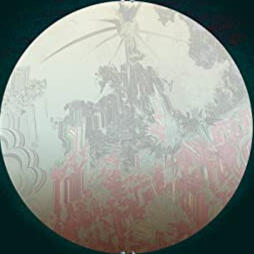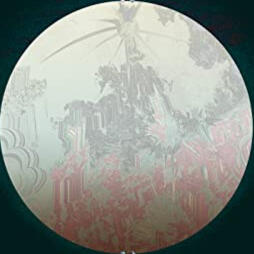
Comshipping
What comshipping is, what it stands for, and resources for com shipping.
This Carrd will contain potentially triggering elements of abuse, trauma and dark fiction. They will be trigger warned appropriately where they appear.
Home
| Home Page: |
|---|
| Here, I link to all other areas of the carrd, alongside a few notes: A basic intro, whatnot. |
Q&A:
Can I use/link this? Sure.
Do I have to read all the sources? There will be a TL;DR. But if you're worried I summarised it wrong, then yes, you will have to.
| Credits. |
|---|
| You can call us Key for now. You can go ask or suggest things here. I don't respond to hatemail. |
Wait!
Let's establish some boundaries, if you are under the age of 13, you should not be here. You should not be consuming any form of dark media, nor should you be on sites where this is commonly mentioned (Tumblr, Twitter, etc.)
I'm just a carrd, though, not a cop. I can't control what you do online, but this is your warning to first consume age appropriate content and let your brain develop a little more before exposing yourself to any form of sexual or violent media mentioned.
Definitions
Scroll points:
Hop between different parts of this section. There's a good amount of things to cover.
What is Comship?
Short for "complex/complicated shipping", comship has two meanings: the idea of "ship and let ship", and the inherent act of shipping taboo pairings. Comshippers believe in the distinction between fiction and reality.
Some Comship ideals.
Don't like, don't look.
Fiction affects reality, but it isn't reality. Separation between the two is crucial.
Crimes such as abuse, pedophilia, incest, or any matter depicted in fiction is not to be condoned IRL. Ever.
Why is comship a thing?
For many reasons. It's interesting for many, the same way true crime is interesting. They may also use dark media to cope with their trauma and/or intrusive thoughts, and it's generally considered a perfectly normal way to handle such issues.
Myths and misconceptions
There are so many, I can only say so much. But here you go.
| Comshippers are predators. |
|---|
| Absolutely not. The whole idea of comshipping is against predatory behaviour: separating fiction from the real world, recognising cause and effects of such issues, and knowing their rights and wrongs. |
| Problematic media creates predators. |
|---|
| It's correlation, not causation. Citing the "cats drink milk" phenomena, we can establish that what is shown to us will affect our views of the world. But we need to recognise that unlike cats drinking milk, all children should have been taught whether or not murder or rape is right or wrong. |
| This is why many platforms have age ratings in place and why blogs have DNIs. Children or mentally unwell individuals will be more easily swayed. Whether a child is unrestricted in their internet access is no fault of the creator, but the parents. |
| Comshippers believe what their media contains. |
|---|
| Not only does this assume all comshippers endorse in dark media at all (it's a stance against harassment and fiction, not necessarily someone who engages in it), it assumes all media is made with the intention of changing the mind of others. Medias that do so are either propaganda or for a cause. Comshippers use dark media to either explore ideas or to vent their personal trauma. |
| Comshipping is harmful and invalidates the experiences of survivors. |
|---|
| Not harassing people over what they like in fiction is invalidating no one. Dark fiction also isn't, in any way, a harmful coping mechanism. Many therapist recommend it, it's perfectly legal, and generally the norm for shipping in non western society and media. In fact, many people who identify with comship are victims. |
| Predators may view dark fiction, but not many people who do are actual predators. Creeps exist regardless of whether they are seen in media. Check resources. |
Q&A:
1. Do I have to like problematic fiction to be comship?
Not at all. Comshipping just means you recognise all ships, as far as real people are not being impacted, are fine. Even if you personally dislike them or find them discomforting, it's nothing to harass or witch-hunt over.2. Is it like proshipping?
Kind of. It used to be considered an alternate label to proship, but has taken on it's own meaning. Proship is the same as comship in terms of ideals, but aren't typically used to mean a complex or taboo ships or the act of shipping taboo ships.3. If comship/proship stances aren't inherently predatory, why are there comship predators?
It should be common sense that predators exists in all spaces, including in anti spaces. However, the long answer is: The separation of fiction, endorsement in fictional crime and standing against censorship is in no way predatory. Many predators who are comship or proship tend to have pre-existing issues unrelated to the media they consume and what they choose to view is only a result of that. Here is a section filled with antishippers who are harassers or straight up predatory.






Trigger warning: Rape, assault, suicide baiting, SA threats, violence, death threats, some may also contain graphic imagery. Gore is censored. So here's a relatively short list of incidents where antis have, in fact, harassed and behaved maliciously, to prove even dark fiction can't be blamed for such shit behaviour.
This also really comes to prove that no, com/proshippers do not use "antis harass us" as an excuse. It happens a little too often.
First, I address threats.

alt: Why do pro-shippers act all surprised when they get groomed and molested IRL? I thought you supported this. You had it coming.

alt: Proshippers should experience all their fanfics, their ships dynamics, etc. and die. Coping mechanism my ass. We all know that's a lie. If you're a proshipper you're a living turn off for every kind of relationship.

Anon saying "whoever raped you should've finished the deal and just off you so we wouldn't have to deal with you anymore."

Anti sending a message saying they will kill them. To quote, "I'll stab you, and then I'll fuck your little pedo body until you die."

Havier says: Wait, who molested you? Because i want to thank them tbh, but I'm dissapointed they didn't do it more.

Erika asking people not to send death threats, see an Anti's response below.

"I don't like how proshippers are agreeing with this tweet." And states they believe that proshippers agree to have an excuse to sexualise children as if not telling someone to kys isn't basic etiquette. /s

They got their phone confiscated for this behaviour, and claimed to have been defending themself. And got angry at their parents.
This following one is a three part screenshot of the same user. It's so upsettingly graphic I saved it for last.
Now, onto the legitimate criminals.

Meanie Devil on tumblr. They said: So what if I'm a rapist? At least I'm not a fucking Reylo. Yeah, she was into star wars and loved Kyle's rapists ass. But hey, she thought rape was so sexy, so if anything I did her a favour. Smiley face emoticon.

This guy sent self harm pics to a 14 year old for proshipping. His excuse was "I didn't know their age."

A known raid by anti-shippers spamming Ao3 volunteers with CSEM. This is a statement by ao3 addressing the issue.

Harrassment. They sent gore to someone alongside threatening them. Saying they deserve all the abuse they got, and worse.

Bendyhatespedos stops doxxing 12 year olds, it's still doxxing regardless of what age they are, my guy.

Sent gore to a user, before asking if they should've sent dog porn instead. SH threats included in the message.

Twitter user replying to profic posts with IRL gore of suicide victims

The images are confirmed to be 2 15 year olds who had committed suicide by user. Anti accuses user of exploiting kids, and that they will touch kids.

"The difference is the gore I sent isn't illegal while the child porn you draw.. is." Hateful misconduct like sending gore breaks ToS. This can also classify for cyberbullying and harassment. Fictional, non realistic, porn is not registered as illegal.
Here, I present to you the very peculiar case of Jace Tangler. He advocates to take down legal images of Anya in a swim suit, and then appears to have been... a sex offender.
End note:
I legitimately feel as though we'd be here all day if I listed everything I've seen. But, I have a few more sources of evidence for you. This account does have many screenshots of similar issues, additionally, here's a thread of somebody dealing with harassment by antis, and here is a whole thread on tumblr with even more screenshots.All kinds of harassment including gore, animal cruelty images (federal law) or real life porn is categorised as a crime. This is because the legality of such intense cyberbullying could be put into question, especially if it's imagery of the recently deceased, or any form of animal cruelty.
| Note: |
|---|
| I know damn well nobody reads the resources actually linked. So if you're lazy, there will be an excerpt of each piece I hand picked that I thought described it the best. Please at least read that. |
Our section on resources will be divided into 5 different sections:
1. The differentiation between fiction and reality,
2. Taboo fiction and why it is both good and healthy,
3. The legality of taboo content,
4. Paraphilia, why it should be de-stigmatised, and why it doesn't immediately mean you are a predator.
5. Misc. articles worth a read.Please click on each item on the list to view a specific section including educational articles on this subject.
Diffrentiating fiction and reality.
The following papers and articles detail if people can distinguish between fiction and reality, if they should be distinguished (and why), and whether or not they affect our morality.
Young kids may know fact from fiction.Excerpt: "Kids typically learn to tell what's real and what's pretend when they're 3-5 years old, new research shows.Those findings come from researchers including Jacqueline Woolley, PhD, an associate professor of psychology at the University of Texas at Austin.Woolley and colleagues studied nearly 400 kids aged 3-6. The findings appear in Child Development."These studies provide new insight into the development of children's ability to make the fantasy-reality distinction," Woolley says in a news release."It is clear from the present studies that young children do not believe everything they hear," she says."
Study: Can children understand the difference?Excerpt: Young children are often immersed in fantasy, and therefore, parents, teachers, and even scholars often think of them as being unable to distinguish reality from unreality. However, research suggests that children are more thoughtful about the differences between fantasy and reality than they may appear to adults.In fact, children use many of the same cues as adults to decide whether something is real or not. So while young children are unable to distinguish fantasy from reality as successfully as adults, they become more capable of doing so as they advance developmentally and acquire more knowledge about the world.Note: This also proves to me perhaps it's a matter of teaching your child ethics instead of yelling at people on the internet who do nothing.
How horror helps overcome trauma, via distinction of fantasy and reality.Excerpt: "When we realize that a threat no longer exists or isn’t real, the related parasympathetic nervous system takes over; it helps us to calm down, facilitating the “rest and digest” response in the body. This instinctive response may contribute to the feeling of relief after a threat has passed. And that relief is part of what researchers are tapping into with exposure therapy.Extensive research has confirmed the effectiveness of exposure therapy. It has been found particularly helpful for treating anxiety disorders including post-traumatic stress disorder, phobias, and obsessive-compulsive disorder. The treatment works by retraining the amygdala— the fear center of the brain—through a process of activating it via exposure to the feared object or situation."
How do we learn to distinguish what’s real from our own internally generated thoughts, imaginings, and dreams?Excerpt: "Across several studies, Simons and colleagues have noted the brain regions that appear to play a prominent role in our ability to determine reality from imagination: for example, a region at the forefront of the brain called the anterior prefrontal cortex and, in particular, a specific brain fold within that region, the paracingulate sulcus (PCS). Neuroimaging studies have shown that activity and connections in these regions may be a useful tool for determining an individual’s proclivity for misattributing imagined internal details for real external ones.These findings are particularly relevant for understanding clinical conditions. Simons has found that, in study participants with a diagnosis of schizophrenia, the anterior prefrontal region shows reduced activity, and this seems to be associated with reduced reality monitoring performance."Note: Here, I can also debunk fiction as a cause for behaviour. Illnesses such as schizophrenia or psychosis plays a role.
Additional resources. If all of that isn't enough for you, I have a few more you can also scroll through.
Benefits of fantasy fiction.Study on distinguishing fiction and reality.Study on how young children differentiate between fact and fiction.Study showing little correlation between real and fictional violence.
Benefits of dark fiction.
Bibliotherapist endorses dark fiction as a means to cope. One article in the first batch of resources has already covered this, but here is a more in depth take on the matter. This section will be split into two sections:
The impact of trauma fiction and what it does for us,
BDSM and how taboo roleplay is both normal and help.
This way, we can establish both sexual and non-sexual works to be on the same page.
Trauma fiction and what it does.
How writing and engaging in trauma fiction helps us develop empathy, heal, and stay interested. Alternatively, click here to skip to the articles and study on kinks and fetishes instead.
A review on fictional trauma, and what it does for a story.Excerpt: "Through false accounts and distorted timelines, we come to understand the narrators’ experiences of trauma as readers feel the inability to both make sense of and accept reality. Thus, readers come to a deeper understanding of unreliable narration through trauma, rather than meet the unreliability with frustration and endless questions. Ultimately, by understanding trauma as the spark of fallibility and unreliable narration, the reader can recognize her own empathy for the narrator as traumatic memory is abreacted into the narrative memory and the narrator works through her trauma."
Literature as a means to understand traumaExcerpt: "In fact, books can also play a vital role in mental illness recovery, and “bibliotherapy” considers reading as therapeutic in understanding emotions. [...] Studying, analyzing and reflecting on literature can help you learn to communicate better with others. Moreover, diverse works of literature by people of all of backgrounds can help foster greater empathy, particularly when it comes to seeing how people process trauma."Note: This is actually an article recommending tons of books with trauma in it! I also don't see why fan-fiction or mangas depicting similar dark tropes are any lesser than novels.
Why do we write dark fiction? How it helps us cope.Excerpt: "It was therapeutic to the authors; it conveyed meaning that could not have been conveyed in a more traditional manner; it served as a metaphor for a resistance narrative against the culturally canonical story of suffering victim; and it provided a shared cultural story that allowed us to connect with many women in our generation. We suggest that narrative “truth” should be concerned with how the story is used and understood. We advocate that methods such as this give voice to stories that are difficult to tell and understand, and open spaces to reflect alternative ways of knowing."
Not convinced? Here are some additional papers:
A study on how crime fiction can evolve to reproduce the benefits of other taboo fictionsUsing taboo writing in an academic classroom.A piece on writing about dark subjects and confronting it.Writing to heal: health benefits. (I also have an opinion piece on coping with depression through fiction.)
Kinks, fetishes, and more.
Consensual non-consent, sado-masochism, DDLG, or any other form of generally "problematic" roleplaying kinks are not predatory in any way, nor should they be stigmatised. Here's why.
Study showing no link between petplay and zoophiliaExcerpt: "Many participants in this study characterized pup play as an immersive experience that provides a potent distraction. In this way, it’s similar to why BDSM in general is appealing to so many people—it helps folks to shed self-awareness in a way that allows them to live in the moment.Incidentally, pup play does not appear to be related to zoophilia, or the desire to have sex with actual animals. In fact, in this study, not a single participant expressed zoophilic desires. Thus, it seems to be fundamentally about roleplay, not about an outlet for zoophilia, which is a common misconception."
Kinks being shown as healthy.Excerpt: "I wanted to explore more about how the stereotypes interface with reality," says Matt R. Nobles, Ph.D., Co-Principal Investigator, University of Central Florida. "Although more than half of the people in this study have been victims of violence or aggression, extremely few had perpetrated such themselves."In the study, 7.7% of participants reported they had been victims of a BDSM-based hate crime, while 10.2% of participants reported they had been victims of an LGBT-based hate crime."Parallel to my work with sexual minorities, my interest is in looking at the nature of identity and mental health in a vulnerable group of people," says Robert J. Cramer, Ph.D., Co-Principal Investigator, University of Alabama. "Contrary to popular perceptions, our study shows kinky persons are largely mentally healthy when it comes to conditions such as depression, anxiety and suicide."Note: It is also good to note that a BDSM relationship can still be abusive. People can still get taken advantage of. Regardless of role-play or sexual activities, please remember to negotiate with your partner(s).
BDSM correltes to generally good psychological health.Excerpt: "It has been generally thought that the practice of bondage-discipline, dominance-submission, sadism-masochism (BDSM) is in some form associated with psychopathology. However, several more recent studies suggest a relative good psychological health of BDSM practitioners.[...]The results mostly suggest favorable psychological characteristics of BDSM practitioners compared with the control group; BDSM practitioners were less neurotic, more extraverted, more open to new experiences, more conscientious, less rejection sensitive, had higher subjective well-being, yet were less agreeable. Comparing the four groups, if differences were observed, BDSM scores were generally more favorably for those with a dominant than a submissive role, with least favorable scores for controls."Note: I doubt studies would show it to be healthy or good for both parties psychologically if it were predatory.
As per custom, here are a few more articles worth your time.
Consensual kinks aren't unethical.Study shows reading romance, thriller and/or erotica increases interpersonal sensitivity.Pup play site making it clear there are no correlation between BDSM and zoophilia or beastiality.
Legality of taboo content.
Before anyone attempts to say that either way, "CP" (it isn't CP) is illegal, here are several documents about the legality of taboo content, and how dark fiction actually helps decrease crime instead of increase it as people may suggest.
Available pornography depicting minors shown to decrease crime.Excerpt: "Following the effects of a new law in the Czech Republic that allowed pornography to a society previously having forbidden it allowed us to monitor the change in sex related crime that followed the change. As found in all other countries in which the phenomenon has been studied, rape and other sex crimes did not increase. Of particular note is that this country, like Denmark and Japan, had a prolonged interval during which possession of child pornography was not illegal and, like those other countries, showed a significant decrease in the incidence of child sex abuse."Note: This is in no way to say I support CSEM material, but I still believe this article comes to show how venting urges onto fiction or something on a screen (like porn) can literally decrease crime.
Federal Law stating that pornography depicting fictional minors is only considered illegal with undistinguishable from real minors.Excerpt: "Child pornography under federal law is defined as any visual depiction of sexually explicit conduct involving a minor (someone under 18 years of age). Visual depictions include photographs, videos, digital or computer generated images indistinguishable from an actual minor, and images created, adapted, or modified, but appear to depict an identifiable, actual minor. Undeveloped film, undeveloped videotape, and electronically stored data that can be converted into a visual image of child pornography are also deemed illegal visual depictions under federal law."Note: The U.S. supreme court ruled also ruled "virtual child pornography" as constitutionally protected speech.
Study on correlation between consumption of internet child porn and offending.Excerpt: "Consuming child pornography alone is not a risk factor for committing hands-on sex offenses - at least not for those subjects who had never committed a hands-on sex offense. The majority of the investigated consumers had no previous convictions for hands-on sex offenses. For those offenders, the prognosis for hands-on sex offenses, as well as for recidivism with child pornography, is favorable."Note: Also read this article showing similar results: "In contrast, permissive attitudes regarding child-adult sex and frequent indulgence in sexual fantasies about children were not significantly related to offending."
For more on legality, these pages will explain further:
Miller test has taboo fiction protected."Barely legal" pornography shown to reduce crime.Unvictimized, married, college graduated white men with low impulse control who possess or seek non-virtual, legitimate child porn shown to be the majority of offenders.
Paraphilia.
Probably one of the most misunderstood mental illnesses on the internet. But what seperates paraphiles from actual offenders? We'll lay that down here.
Note that none of this in any way condones the actions of any offender. If anything, we are here to show the impact of what can happen if it goes untreated or unnoticed. Being against how people can cope with these urges and recover from them helps nobody.
Basic definition and conceptExcerpt: "Paraphilias are persistent and recurrent sexual interests, urges, fantasies, or behaviors of marked intensity involving objects, activities, or even situations that are atypical in nature. Although not innately pathological, a paraphilic disorder can evolve if paraphilia invokes harm, distress, or functional impairment on the lives of the affected individual or others."
How paraphilia can emerge and What they do to a person.Excerpt: "Another theory about paraphilia risk factors is that they are linked to stages of childhood psychological development like temperament, early relationship formation, trauma repetition, and disrupted development of sexuality, as follows:
[...]
Trauma repetition: People who are the victim of sexual or other forms of abuse, especially if it occurs during childhood, may identify with the abuser such that they act out what was inflicted on them by victimizing others in some way. They may also act out the trauma by somehow harming themselves.
[...]
Family risk factors for paraphilia development include high conflict between parents or low supervision by parents, a lack of affection from the mother, and generally not feeling treated well by their parents. People with paraphilia tend to have trouble making and keeping friends and other relationships."Note: It states in the article that pedophiles who act on their urges by sexually offending tend to engage in grossly distorted thinking, in that they use their position of power and view offending as an appropriate way to meet their needs, think about children as equal sexual beings to adults, and consider their sexual needs as uncontrollable." This... goes against what most patients tend to feel, it is known to cause emotional distress to the patient. (As seen with "Many people with one of these disorders suffer in secret or silence out of shame.")
Overview of Paraphilia. What causes it?Excerpt: "It is not clear what causes paraphilia. Some experts believe it is caused by a childhood trauma, such as sexual abuse. Others suggest that objects or situations can become sexually arousing if they are frequently and repeatedly associated with a pleasurable sexual activity. In most cases, the individual with a paraphilia has difficulty developing personal and sexual relationships with others.Many paraphilias begin during adolescence and continue into adulthood. The intensity and occurrence of the fantasies associated with paraphilia vary with the individual, but they usually decrease as the person ages."Note: By all means, this comes to show in many causes paraphilia tends to occur due to exposure to such material without punishment in adolescense.
Here are articles to prove it's recognition under the DSM as a mental illness:Definition, context and clinical strategiesWhy is it a mental disorder?Resource on Paraphilic disorderDiagnostic criteria + PDF.
Misc Articles.
I won't be summarising these, as they aren't as relevant to the point as other resources may be. However, I think they're worth a read.
Framing theory: why not all content inherently promotes the subject.Why do we feel attatched to fictional characters?Psychology of character bonding.Why we get attatched, does it hurt anyone?Take on puritanism culture in fandom.Take on purity culture in fandom... again.This rentryA whole statement from NCMEC to stop sending them fictional porn:


















